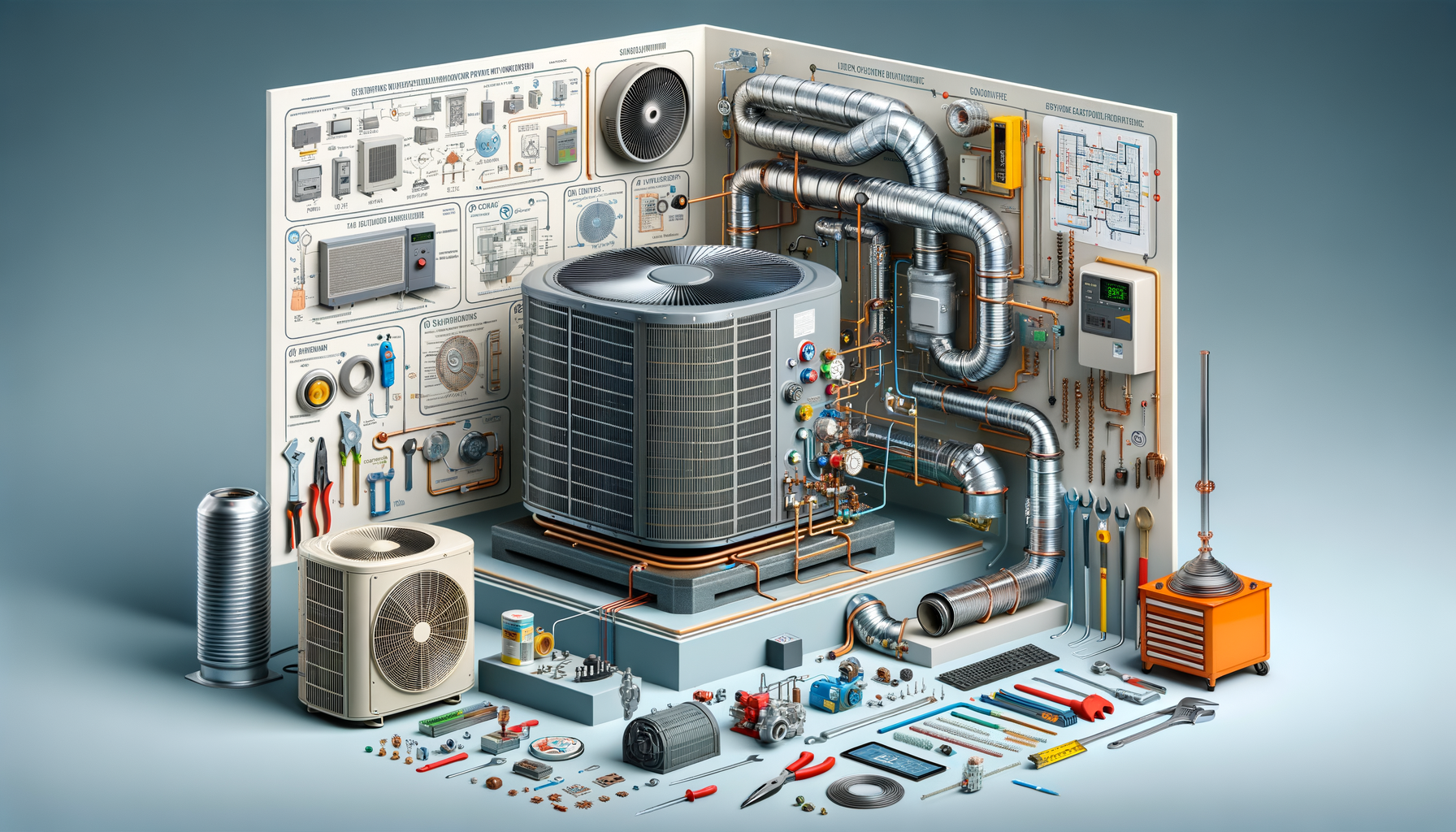
Get Into HVAC in the US — Start with Training, Earn More
Understanding HVAC Training: The Foundation of a Rewarding Career
Heating, Ventilation, and Air Conditioning (HVAC) systems are integral to modern life, providing comfort and safety in homes, offices, and industrial settings. As such, the demand for skilled HVAC technicians is on the rise, making HVAC training a crucial step for anyone looking to enter this field. HVAC training programs are designed to equip students with the necessary skills to install, maintain, and repair these complex systems. These programs typically cover a range of topics, including electrical systems, refrigeration, air distribution, and safety protocols.
One of the key components of HVAC training is understanding the principles of thermodynamics and fluid mechanics, which are essential for diagnosing and fixing system issues. Moreover, courses often include hands-on training, allowing students to work directly with HVAC systems under the supervision of experienced instructors. This practical experience is invaluable, as it prepares students for real-world scenarios they will encounter on the job.
In addition to technical skills, HVAC training also emphasizes the importance of customer service and communication. Technicians often work directly with clients, requiring them to explain complex issues in understandable terms and provide excellent service. This combination of technical and soft skills makes HVAC training comprehensive and well-rounded, preparing students for a successful career in a growing industry.
The Benefits of Pursuing HVAC Training
There are numerous benefits to pursuing HVAC training, particularly in the United States where the demand for skilled technicians continues to grow. One of the most significant advantages is the potential for a stable and lucrative career. According to the U.S. Bureau of Labor Statistics, employment of HVAC technicians is projected to grow steadily over the next decade, driven by the need to replace retiring workers and the increasing complexity of HVAC systems.
Another benefit is the opportunity for specialization within the field. HVAC training allows individuals to focus on specific areas such as refrigeration, air quality, or energy efficiency. Specializing can lead to higher earning potential and increased job satisfaction, as technicians can align their careers with their interests and strengths.
Furthermore, HVAC training provides a pathway to entrepreneurship. With the right skills and experience, many technicians choose to start their own businesses, offering installation, maintenance, and repair services. This entrepreneurial route not only offers financial rewards but also the freedom to work independently and make strategic business decisions.
Choosing the Right HVAC Training Program
Selecting the appropriate HVAC training program is crucial for aspiring technicians. With numerous options available, it can be challenging to determine which program offers the best fit. Prospective students should consider several factors when making their decision, including accreditation, curriculum, and cost.
Accreditation is a critical consideration, as it ensures that the program meets industry standards and provides a quality education. Accredited programs are often recognized by employers, which can enhance job prospects upon graduation. Additionally, students should review the curriculum to ensure it covers essential topics and provides hands-on training opportunities.
Cost is another important factor, as HVAC training programs can vary significantly in price. Prospective students should compare tuition fees, financial aid options, and the potential return on investment. Many programs offer scholarships or payment plans, making them more accessible to a wider range of students.
Finally, it’s beneficial to seek out testimonials or reviews from past students to gain insight into the program’s strengths and weaknesses. By thoroughly researching and evaluating their options, aspiring HVAC technicians can choose a training program that aligns with their career goals and sets them on the path to success.


